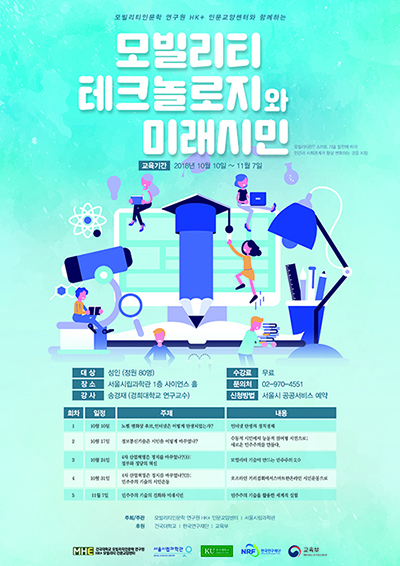The Fourth Industrial Revolution brought about changes in government and political parties and catalyzed shifts in civic movements. Future citizens are anticipated to enhance their information-gathering abilities and social criticism skills, making political participation more accessible through democratic technology. Moreover, information and communication technology advancements provide the groundwork for simultaneous and global civic movements. This lecture examines the evolution from offline civic movements to internet-based ones through case studies and proposes the direction that civic movements utilising democratic technology should take. Also, this lecture presents historical examples of civic movements to citizens, discussing the impact of civic movements utilising mobility technology. Ultimately, the lecture raises questions about the implications of civic movements and their proper application.

- Humanities for Happiness
- Off line
Did the Fourth Industrial Revolution Change Politics? (2): Civic Movement of Democracy Technology
Lecture Information
- Date2018-10-31
- LocationSeoul Science Center
Instructor
Song, Kyungjae Ph. D. political science, Kyung Hee University. Former advisory board member in Eduin, Ministry of Education/ Korea Communications Standards Commission/ Ministry of Culture, Media Policy Forum, K-MOOC management/ Former Research Fellow in Local Press Commission. Currently, advisory board member in National Election Commission and research professor in Kyung Hee Institute for Human Society (conducting research and teaching in fields such as political process, election campaign analysis, internet politics, cosmopolitan civic education, social media/political communication, social science methodology, governance and social capital).

